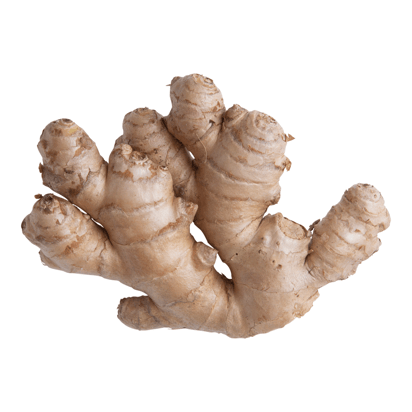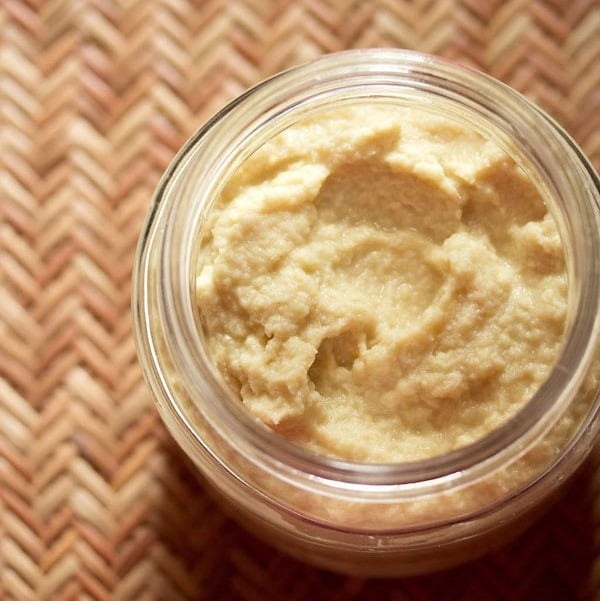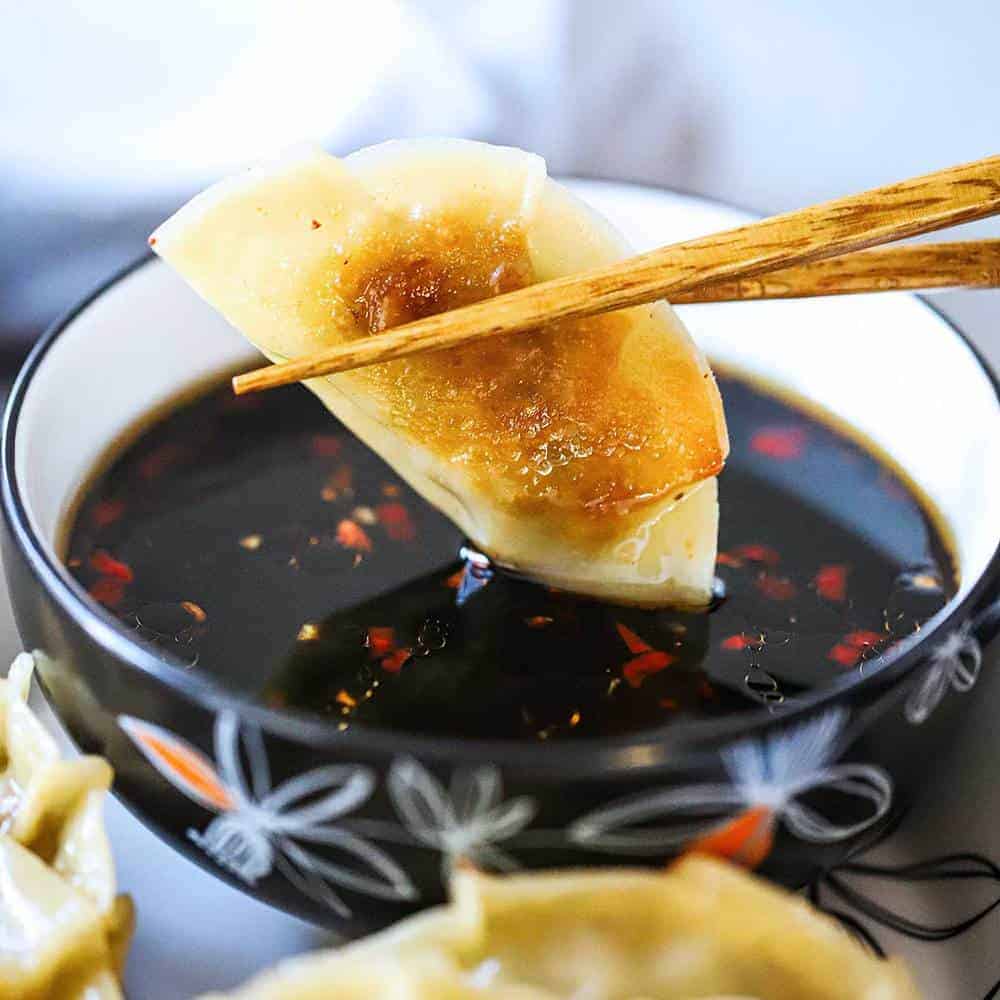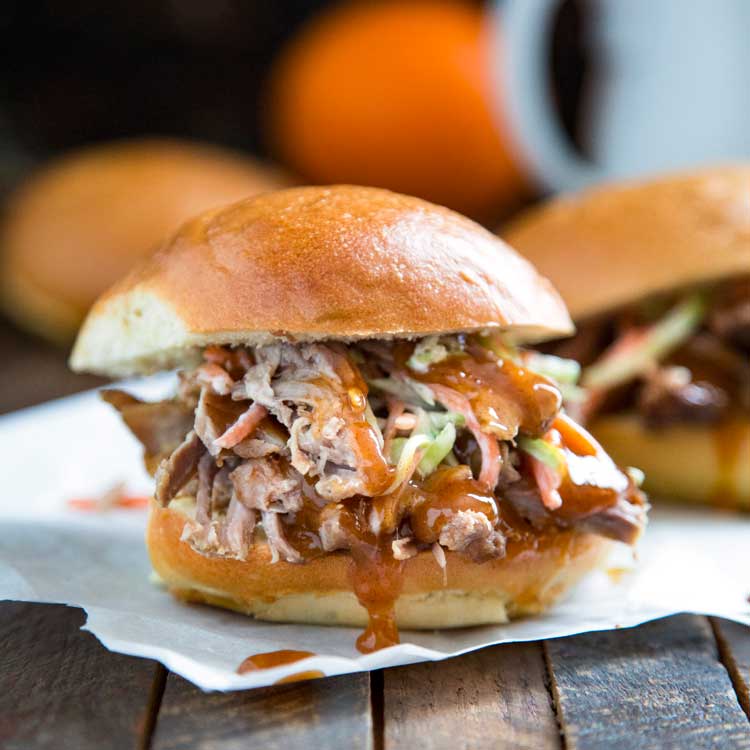Fresh Ginger: Important Facts, Health Benefits, and Recipes
Explore the health benefits, history, and uses of fresh ginger, a versatile spice with antioxidant, anti-inflammatory, and antibacterial properties, in various cuisines and recipes.

Nutritional Facts
1 tsp
Amount per serving
Calories
1.6
Carbohydrates
0.4 g
Fat
0 g
Protein
0 g
Saturated Fat
0 g
Sodium
0.3 mg
Fiber
0 g
Sugar
0 g
Best Fresh Ginger Recipes
-

-

-

-

-

-

-
:max_bytes(150000):strip_icc()/__opt__aboutcom__coeus__resources__content_migration__serious_eats__seriouseats.com__recipes__images__2013__06__20130623-256965-kale-daiquiri-3c4b2ab6c195466cb54522f8a2408763.jpg)
-

-
![Ginger-Soy Dipping Sauce Image]()
-
![Candied Ginger Recipe Image]()
-
![Potsticker Dumplings Recipe | Cook the Book Image]()
-
![Ginger Pineapple Fried Rice Recipe Image]()
-
![Cheddar Ginger Wafers Recipe Image]()
-
![Apple Sujeonggwa (Korean Cinnamon-Ginger Punch) Recipe Image]()
-
![Stir Fried Japanese Eggplant with Ginger and Miso Recipe Image]()
-
![Easy Tandoori Chicken and Vegetables Image]()
-
![Asian Flank Steak Skewers Image]()
-
![Southern Pulled Pork Sliders Image]()
-
![New Orleans Pulled Pork with Orange Sauce Image]()
-
![Chickpea Noodle Soup Image]()
-
![Rhubarb Sorbet Recipe Image]()
-
![Sheet Pan Hawaiian Chicken Image]()
-
![Pineapple Salsa with Jicama Recipe Image]()
-
![Soba Noodle Bowls with Spinach and Poached Eggs Recipe Image]()
-
![Lemon Chicken Chickpea Soup Recipe Image]()
-
![Cranberry Salsa Recipe {Fresh & Sweet Flavor} Image]()
-
![Cambodian Grilled Lemongrass Beef Skewers Recipe Image]()
-
![Chicken Kara-age, AKA Japanese Fried Chicken Recipe | Cook the Book Image]()
-
-
![Cream of Carrot with Ginger Soup Recipe | Cook the Book Image]()
-
![DIY Root Beer Recipe Image]()
-
![Turkey Weisswurst (White German-Style Sausage With Lemon, Nutmeg, and Parsley) Recipe Image]()
-
![Scooped: Makrut Lime, Ginger, Star Anise Sorbet Recipe Image]()
-
![Serious Heat: Kogi-Inspired Bulgogi Tacos with Spicy Slaw Recipe Image]()
-
![Thai Pomelo and Shrimp Salad (Miang Som O) Recipe Image]()
-
![Stir-Fried Green Beans and Five-Spice Dry Tofu Recipe Image]()
-
![Stir-Fried Bok Choy Recipe Image]()
-
![The Best Vegan Mapo Tofu Recipe Image]()
-
![How to Make a Ginger Bug for Healthy Homemade Sodas Image]()
-
![Stinging Nettle Cordial Recipe Image]()
-
![Crock Pot Teriyaki Steak Recipe Image]()
-
![Peanut Thai Pasta Salad Recipe Image]()
-
![Ikan Bakar: Malaysian Char-Grilled Fish Recipe Image]()
-
![Ginger Julep ’68 Fastback Recipe With Bourbon Image]()
-
![Thai Carrot Soup With Ginger and Lemongrass Recipe Image]()
-
![Gingerbread Coffee Creamer Recipe Image]()
-
![Indian Chicken Pakora Fritters Recipe Image]()
-
![Classic Chinese Daikon, Carrot, and Tomato Beef Stew Image]()



:max_bytes(150000):strip_icc()/candied-ginger-4172478-hero-01-0ccbf042b4b647489c25ac0053ebc435.jpg)
/__opt__aboutcom__coeus__resources__content_migration__serious_eats__seriouseats.com__recipes__images__20100205potstickerdumplings-24c6fa361e484a5698973428bfb9022d.jpg)
:max_bytes(150000):strip_icc()/__opt__aboutcom__coeus__resources__content_migration__simply_recipes__uploads__2007__06__ginger-pineapple-fried-rice-horiz-a2-1800-327c5d947ea74ec880005ad487d86835.jpg)
/__opt__aboutcom__coeus__resources__content_migration__serious_eats__seriouseats.com__recipes__images__2012__12__20121210-vicky-cheddar-cheese-ginger-e7b2fee6637a4f75a7dc3c7dbbc0585b.jpg)
:max_bytes(150000):strip_icc()/__opt__aboutcom__coeus__resources__content_migration__serious_eats__seriouseats.com__2020__11__20201015-banchan-thanksgiving-cinnamon-apple-tea-vicky-wasik-1-2-f18ba2e1d9964fb6885835f603266333.jpg)
:max_bytes(150000):strip_icc()/__opt__aboutcom__coeus__resources__content_migration__simply_recipes__uploads__2012__09__japanese-eggplant-ginger-miso-horiz-b-1800-1ed44cd99e914f958f6d94ae257f01fc.jpg)




:max_bytes(150000):strip_icc()/__opt__aboutcom__coeus__resources__content_migration__simply_recipes__uploads__2009__05__rhubarb-sorbet-horiz-a-1600-993e50ac02d34680849a5caccb1afd2b.jpg)
:max_bytes(150000):strip_icc()/__opt__aboutcom__coeus__resources__content_migration__simply_recipes__uploads__2018__10__Sheetpan-Hawaiian-Chicken-LEAD-HORIZONTAL-a0e6a8efee16418bbc9ce30b6c96b412.jpg)
:max_bytes(150000):strip_icc()/__opt__aboutcom__coeus__resources__content_migration__simply_recipes__uploads__2016__05__pineapple-salsa-jicama-horiz-a-1600-951b31f70ea041efb93688c5ad4d0866.jpg)
:max_bytes(150000):strip_icc()/__opt__aboutcom__coeus__resources__content_migration__simply_recipes__uploads__2017__02__2017-02-21-Soba-Noodle-Bowl-5-e88b58811e7e4da188a10ea2a4dc3004.jpg)
:max_bytes(150000):strip_icc()/__opt__aboutcom__coeus__resources__content_migration__simply_recipes__uploads__2016__01__lemon-chicken-rice-soup-horiz-a-1600-4782d031d2e4495ba814f6d11e7cdb7f.jpg)
:max_bytes(150000):strip_icc()/__opt__aboutcom__coeus__resources__content_migration__simply_recipes__uploads__2014__11__cranberry-salsa-horiz-a-1800-7654e493030a4ac5b55677bcf8d126da.jpg)
:max_bytes(150000):strip_icc()/__opt__aboutcom__coeus__resources__content_migration__serious_eats__seriouseats.com__images__2015__06__20150530-shao-z-beef-skewers-4-be3e8f2aa59d40a9ab4f4c8b6e110bfb.jpg)


:max_bytes(150000):strip_icc()/__opt__aboutcom__coeus__resources__content_migration__serious_eats__seriouseats.com__recipes__images__2012__08__080512-216916-diyvsbuy-rootbeer-73eb89f8c2ae40dba1e39924a204c383.jpg)
:max_bytes(150000):strip_icc()/__opt__aboutcom__coeus__resources__content_migration__serious_eats__seriouseats.com__recipes__images__2013__11__20131112-turkey-weisswurst-recipe-34-ba385b3d5ab64d1786f45a7b39c20e8e.jpg)
:max_bytes(150000):strip_icc()/__opt__aboutcom__coeus__resources__content_migration__serious_eats__seriouseats.com__recipes__images__20100826kaffirlime-4e59fb6021384d309f50ee56a918b984.jpg)
:max_bytes(150000):strip_icc()/__opt__aboutcom__coeus__resources__content_migration__serious_eats__seriouseats.com__recipes__images__20090804-tacos-c065aee663f14170832cbb59c1919897.jpg)
:max_bytes(150000):strip_icc()/__opt__aboutcom__coeus__resources__content_migration__serious_eats__seriouseats.com__recipes__images__2013__01__20130114-pomelo-shrimp-one-bite-salad-recipe-9ed0ac3995de444798e28143de28d1a0.jpg)
:max_bytes(150000):strip_icc()/__opt__aboutcom__coeus__resources__content_migration__serious_eats__seriouseats.com__recipes__images__2013__08__20130826-seriously20asian20taiwan-green20beans20with20dry20tofu-finished20dish-e1bbaa966e004243a3af3f97c66d9cc1.jpg)
:max_bytes(150000):strip_icc()/__opt__aboutcom__coeus__resources__content_migration__serious_eats__seriouseats.com__recipes__images__2015__09__20150919-midautumnfeast-fiona-reilly-20150919-midautumnfeast-stirfriedgreens-fiona-reilly-e8915d39c15640f18471ac328ba1bd1f.jpg)
:max_bytes(150000):strip_icc()/__opt__aboutcom__coeus__resources__content_migration__serious_eats__seriouseats.com__2013__02__2021-02-12-Vegan-Mapo-Tofu-MHOM-21-ab1d5b2229d2493b8b1889896ccf17df.jpg)
:max_bytes(150000):strip_icc()/GingerBug-4802176-156-a9b216497b4847e7bc0fa68de69ef014.jpg)
:max_bytes(150000):strip_icc()/nettle-tea-1009574190-5c8a8919c9e77c0001ac17e4.jpg)
:max_bytes(150000):strip_icc()/teriyaki-beef-sc-25-56a8c3f73df78cf772a06d4b.jpg)
/peanutthainoodles-596e6dae0d327a0010ef23af.jpg)
:max_bytes(150000):strip_icc()/ikan-bakar-charcoal-grilled-fish-recipe-3030209-Hero_02-d55a00da93a84d6ab3ec3a4a71123e37.jpg)
:max_bytes(150000):strip_icc()/GingerJulep68Fastback-98065422-56a173f63df78cf7726ac547.jpg)
:max_bytes(150000):strip_icc()/carrot-soup-971ab89176d740a1928e94052dc4963c.jpg)
:max_bytes(150000):strip_icc()/gingerbread-creamer-horizontal-58a701e45f9b58a3c91cc214.jpg)
/GettyImages-1070374586-5c5d0b7946e0fb000127c7a2.jpg)
:max_bytes(150000):strip_icc()/Daikon-and-Carrot-Beef-Stew-5740c2bd5f9b58723d75ec8b.jpg)